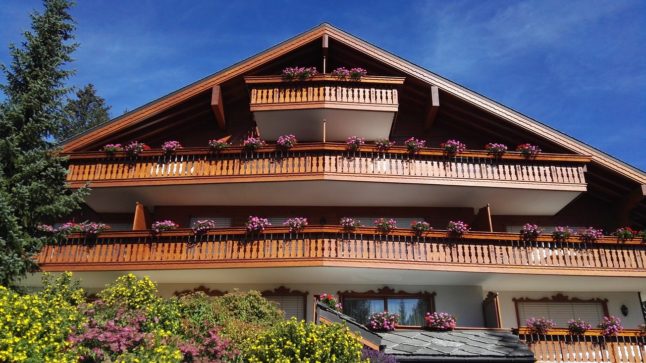SVP has long blamed Switzerland’s foreign population for all kinds of misdeeds — from taking jobs away from the Swiss and abusing the country’s welfare system, to not recycling their trash correctly.
In yet another “attack” on Switzerland’s foreign population, the SVP is now pointing accusing fingers at immigrants for the lack of housing in certain Swiss regions.
This claim has been made by a SVP deputy Michael Buffat, who said that foreigners, including about 70,000 Ukrainian refuges currently in the country, are occupying housing, while many Swiss can’t find vacant dwellings.
Is this claim true or false?
It is correct that the Swiss rental market is experiencing a shortage, with dwellings becoming scarcer in most cantons.
In all, according to a study carried out by Raiffeisen bank, 20 of Switzerland’s 26 cantons will lack sufficient housing next year, including Geneva, Zurich, and Zug, which are among the country’s most populated and industrialised centres.
Bern, Vaud, and Graubünden are also heavily impacted.
READ MORE : Switzerland set to experience housing shortage and (even) higher rents in 2023
So this part of SVP’s claim — that there is indeed a housing shortage in Switzerland — can’t be disputed.
Yes, but are immigrants really responsible for this situation?
The situation is much more complex. In fact, there are several reasons why housing is becoming scarce across the country. One is the increase in construction costs, which has slowed down activity in the sector.
Another is that Switzerland is a small country and building land is becoming increasingly scarce.
Immigrants can’t be blamed for either of these phenomena.
As far as foreigners are concerned, SVP’s claim is only partially true.
“Switzerland has been in a situation of uninterrupted demographic growth for several decades, and this is explained in particular by the arrival of young migrants, who also contribute to the Swiss birth rate,” according to Philippe Wanner, professor at the Institute of Demography and Social Economics at the University of Geneva.
However, this is not the full picture.
In a direct response to Buffat’s accusation, the government pointed out that immigrants usually occupy less housing space than the Swiss — in other words, the type of apartments they are looking for don’t compete with those that the permanent population favours.
Specifically, based on data from 2021, the “average living area of a Swiss household was 52.2 square metres, while that of a household of foreign nationality was 37.6 square meters”, the Swiss government said.
“As for Ukrainians, these refugees use much less space than Swiss people, because they often do not live in their own apartment, but are placed in dwellings occupied by people established in Switzerland or in collective housing.”
READ MORE: How foreigners are changing Switzerland



 Please whitelist us to continue reading.
Please whitelist us to continue reading.
Member comments